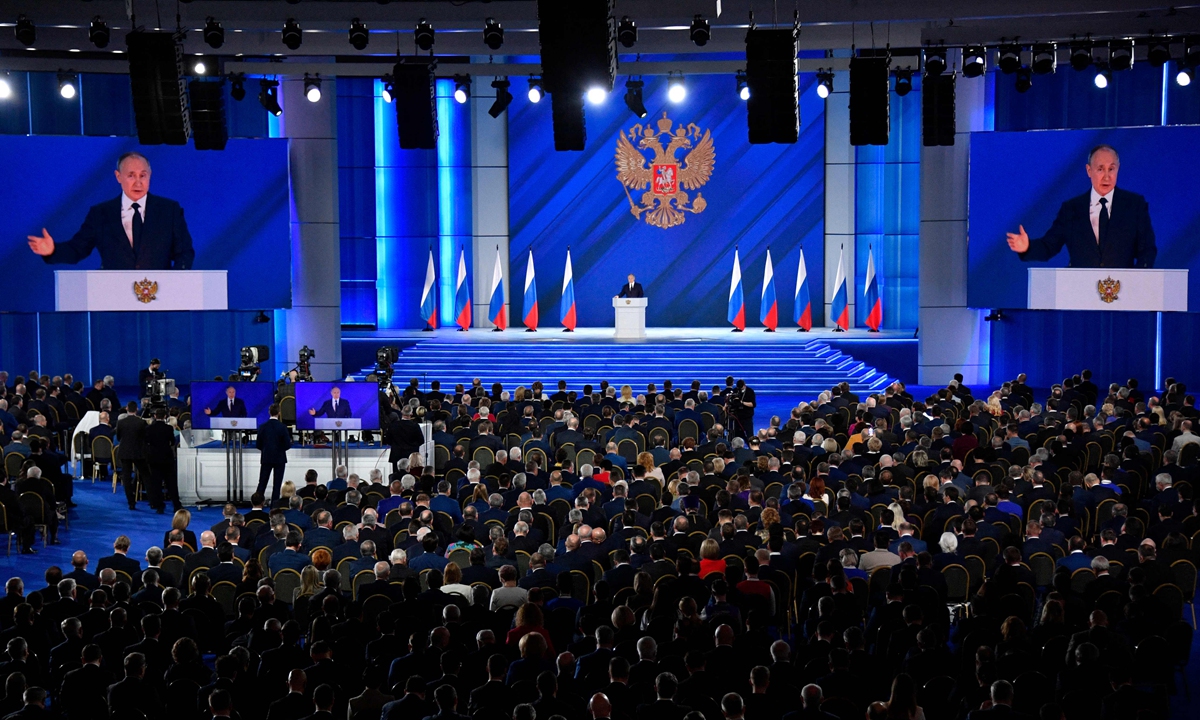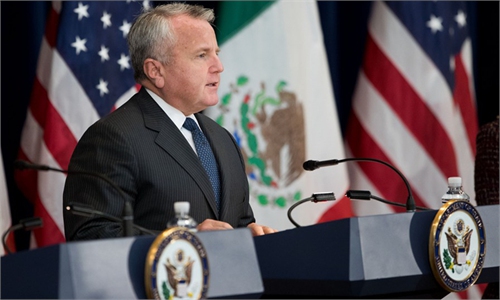
Russian President Vladimir Putin gives his annual state of the nation address in Manezh, Moscow, Russia on Wednesday. Photo: VCG
Russian President Vladimir Putin once again urged in his annual address to the Federal Assembly on Wednesday for permanent members of the UN Security Council, who are also the five major nuclear-armed powers in the world, to discuss issues related to strategic weapons and global stability, with a Chinese expert saying China would be the most supportive one while the US and the UK would be lukewarm.
The subject of such negotiations would be the establishment of a mechanism of conflict-free coexistence based on a security equation, Putin said, stressing that the US, Russia, China, the UK and France have a "special responsibility" in this regard.
Sun Zhuangzhi, head of the Institute of Russian, Eastern European and Central Asian Studies of the Chinese Academy of Social Sciences, told the Global Times that on the one hand, Russia is proposing such an initiative to highlight its status as a major power, as well as a permanent member of the UN Security Council; on the other hand, Moscow hopes that the current world system will return to a healthier and more normal track with the UN at its core.
Putin also hopes to de-escalate the conflict with the West by setting a new agenda for dialogue, especially with the US, so that Russia's international situation can be improved, Sun said.
As for the reactions from the other four major nuclear-armed powers, Sun said China will be the most supportive one, and then France, while the US and UK will unlikely support Russia's initiative, Sun said.
China and Russia share similar views and interests on many key international issues, with both countries wanting to guide the international order in a more just and rational direction, he noted.
Last year, the US, UK and France didn't oppose the summit. Back then, their relations with Russia were not as intense. But since Joe Biden took office, Washington is now taking further sanctions against Moscow. A series of frictions between Russia and the US have led to a freezing point in bilateral relations.
It is very clear that Biden wants to strengthen cooperation between the US and Europe to further contain China and Russia. Under such circumstances, both Washington and London may be more lukewarm to the initiative of the summit. "At least, for now, it is very difficult for the US, in particular, to support the Russia-proposed initiative," he added.



